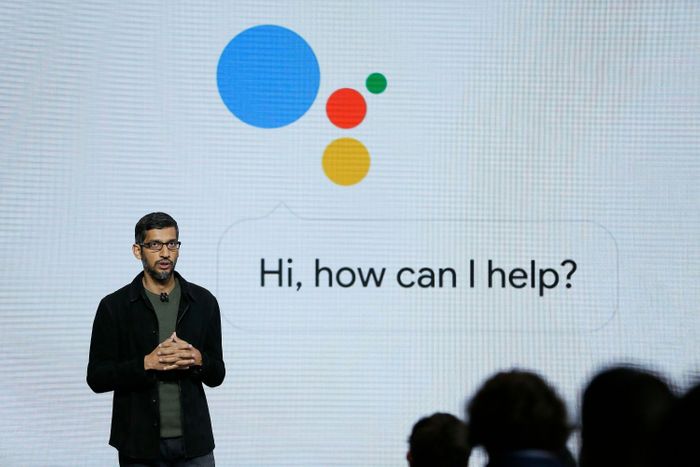
Google’s had trouble with Duplex, its AI system that makes phone calls on your behalf while sounding frighteningly human, since the first demo back in May. The technology was used at the company’s I/O developer conference to make a reservation at a restaurant. It worked fine, except the robot placing the call never mentioned to the unsuspecting human on the other end of the line that they were speaking with a robot and also that the call was being recorded.
A month later, Google demonstrated the technology again, this time to a room full of tech press in a Thai restaurant on the Upper East Side of Manhattan. “Hi. I’m calling to make a reservation. I’m Google’s automated booking service so I’ll record the call,” Duplex said at the start of each call it placed. If a person didn’t want to be recorded and said so, the call was immediately dropped. (I asked several questions about this.) Nick Fox, VP of product and design for Google Assistant, said the company had always been planning on a disclosure but hadn’t included it at I/O because Google “thought of it more as a technical demo.” The updated demo, while still creepy in an oh wow maybe that guy with the cardboard sign about robots taking over isn’t so nutty way, seemed on track to make good on those disclosure promises. But new information indicates otherwise.
VentureBeat posted a video testing Duplex earlier this month in which the AI can be heard making a reservation. “Hi, I’m calling to make a reservation for a client. I’m calling from Google, so the call may be recorded,” Duplex says in the clip. If you’ve never seen Duplex in action, the thing you need to know is that it has been engineered to sound very, very human. Scott Huffman, vice-president of engineering for Google Assistant, explained this summer that his team spent time training the robot to pause and to say “um” and “ah” like a human would, because those tics ultimately translated to fewer unsuccessful calls. The more human the technology sounded the more effective it was. Which makes a clip of Duplex, once again not telling the person on the line that it’s a robot, all the more alarming.
A source told the Verge the “person” in the VentureBeat clip is actually a real person, hence no disclosure. “Google’s Duplex tests involve a mix of the two; some are led by Googlers, while others let the AI steer. The majority of calls are the latter and automated,” the Verge notes. But that’s an entirely different, and still funky-smelling kettle of fish for Google. If some of the calls are humans who still sound pretty robotic and some of the calls are robots engineered to sound fallibly human … how are we supposed to be able to tell the difference?
The easy fix, or at least the easy fix as far as a tech journalist who has never worked for Google or in AI is concerned, seems like it would be devoting a few extra seconds at the beginning of each call to be crystal clear. Hi, you’re speaking with a person calling from Google Assistant or Hi, I’m an automated service calling from Google Assistant. After that, in both instances, the recording is also disclosed. Nobody is going to hang up a call over the negligible extra time it takes to be clear who they are taking to — or nobody who wasn’t going to hang up on the call anyway.





























